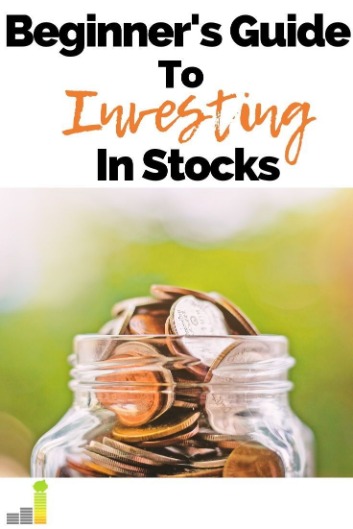How To Invest In Stock Market For Beginners
Table of Contents Heading
- Basics Of Stock Trading: How Do Investors Choose Stocks?
- The Different Ways To Invest In The Stock Market
- Follow Warren Buffetts Advice, Buy And Hold The Market
- How To Get Into The Stock Market
- How To Start Investing In Stocks:
Specifically, those just getting started investing should stick to high quality, dividend paying stocks. Any security you invest in when you invest in the stock market has the potential to drop in value.
While Acorns was a great option that reduced the guesswork of which specific stocks or bonds to buy, it didn’t suit me since I set up a separate account exclusively for investing. The stock market, however, can be daunting, especially during volatile times. But behind complicated terms and a slew of changing numbers lies an opportunity for retirement funds, emergency cash, or just another source of income. This article discusses how to invest in the stock market in the US. If you live in another country, the process may be different. Focus on the financial health of the company rather than investing in a company simply because you like their brand. Pay down your debt, particularly high-interest debt, before you focus on investing in the stock market.
Basics Of Stock Trading: How Do Investors Choose Stocks?
Read, watch videos, and absorb everything you can about trading, techniques, tips, and trading strategies. You can keep track of your own patterns as a trader and learn from your past experiences. Continuing to learn will help you adapt to market shifts and changes.
Don’t be surprised if the price you pay — or receive, if you’re selling — is not the exact price you were quoted just seconds before. Bid and ask prices fluctuate constantly throughout the day. That’s why a market order is best used when buying stocks that don’t experience wide price swings — large, steady blue-chip stocks as opposed to smaller, more volatile companies. To buy stocks, you’ll first need a brokerage account, which you can set up in about 15 minutes. Then, once you’ve added money to the account, you can follow the steps below to find, select and invest in individual companies. But rather than trading individual stocks, focus on stock mutual funds.
The Different Ways To Invest In The Stock Market
You might also consider ridding yourself of high-interest consumer or credit card debt before putting too much money in the stock market. If you decide to do your own investing or use a robo-advisor, you’ll need to create an investment strategy and open an investing account with a financial institution. Mutual Funds and ETFs are the easiest and safest ways to invest. With single stocks, you have all your “eggs in one basket,” so you’re investments aren’t as diversified. As you get more comfortable with investing, you can choose to invest more money in a variety of investments. When investors purchase shares of an index fund, they own a small part of each of the companies in that index.

Stock market trading is when a trader buys and sells stocks with the aim of making a profit. For instance, if the fundamentals of the company have changed, which happens to every company, it’s important to reevaluate it and see if it’s still a great investment. Other times to consider selling are when the price of the company has reached its intrinsic value, or when you have a better opportunity and you need the cash.
Follow Warren Buffetts Advice, Buy And Hold The Market
So whether you are 20, 45 or 62, right now is the best age for you to start investing. The best age to start investing is however old you are right now. This is an investing classic and a must read for any beginning investor. It walks you through the basics of investing and is applicable as you become a seasoned investor too. The entire time, it keeps investing simple to follow along.
That’s precisely the opposite of stock trading, which involves dedication and a great deal of research. Stock traders attempt to time the market in search of opportunities to buy low and sell high. dollars.) If you want mutual funds and have a small budget, an exchange-traded fund may be your best bet. Mutual funds often have minimums of $1,000 or more, but ETFs trade like a stock, which means you purchase them for a share price — in some cases, less than $100). But mutual funds are unlikely to rise in meteoric fashion as some individual stocks might.
A customer service representative should be able to walk you through the process the first time to show you all the ins and outs of your particular account. Stock trading is having a major news moment, thanks to members of an online Reddit forum called r/wallstreetbets who drove up the share prices of several stocks, mainly Gamestop and AMC. If you’ve never tried it yourself, you may be wondering whether now is the time to start stock trading.
How To Get Into The Stock Market
A financial advisor can help direct you in setting up a portfolio, or you can create one on your own. Investing in the stock market can be very rewarding, especially if you avoid some of the pitfalls that most new investors experience when starting out. Beginners should find an investing plan that works for them and stick to it through the good times and bad.
You’re better off putting it in a CD, money market account or high-yield savings account. But if you’re looking at a long-term goal, like retirement, investing in stocks makes more sense.

If you focus your attention on companies that have wide economic moats, you will find firms that are virtually certain to have higher earnings five or 10 years from now. Honestly and correctly answering these questions will not only help you be patient when patience is needed, but it will also greatly help you with your selling decisions. The first big positive surprise from a company is unlikely to be the last. Be very wary of value traps, or companies that look cheap but are generating little or no economic value.
How To Start Investing In Stocks:
CNBC Select’s editorial team works independently to review financial products and write articles we think our readers will find useful. We may receive a commission when you click on links for products from our affiliate partners. By clicking ‘Sign up’, you agree to receive marketing emails from Insider as well as other partner offers and accept our Terms of Service and Privacy Policy. With a robo-advisor, you’ll just check in on your account periodically to ensure it’s progressing to match your goals and make adjustments as needed.
- Thanks to mutual funds and ETFs, we can simply buy one single security that holds shares in all 505 companies.
- I’m already thinking what my next buy should be and how much more money I should invest because it’s so easy.
- Also known as impact investing, this practice enables investors to merge financial gains with environmental or social progress.
- Credible examples include Will O’Neil workshops, Dan Zanger and Mark Minervini, both of which I have attended and reviewed thoroughly here on the site.
- The amount of money you should invest in stocks is entirely dependent on your own personal situation.
- Once you understand what makes the most sense for you as an investor, you can choose the investment advisor or technology platform that you want to use.
- Try to avoid checking your portfolio every day , since it’s very common for the market to fluctuate each day.
“You do not have to be a guru,” says Lauryn Williams, a Texas-based CFP and founder of Worth Winning. “You need to find an investment vehicle and focus getting money into it.”
How Much Should I Invest In Stocks?
In contrast, mutual fund shares can only be bought or sold at the end-of-day closing price. When private firms see which stocks investors favor, they may decide to fund their business by selling stock and raising cash.
For example, the S&P 500 is an index of the 500 largest U.S. companies; it’s viewed as a measurement of how well the stock market is performing overall. You can buy an exchange-traded fund that holds investments exactly the way the index does. So if you buy shares of the S&P 500 ETF, you’re technically invested in 500 companies in the exact proportion of the index. If you had to find 500 viable companies to invest in on your own time, it would be a full-time job — and tracking it sounds like my own personal hell. Mutual funds are managed funds that pool investors’ money together to invest in something. An actively managed fund has a fund manager to decide which stocks or other investments to include in the fund.
Index funds also cure the diversification issue because they hold many different stocks within a single fund. The upside of stock mutual funds is that they are inherently diversified, which lessens your risk. For the vast majority of investors — particularly those who are investing their retirement savings — a portfolio comprised mostly of mutual funds is the clear choice. For long-term investors, stocks are a good investment even during periods of market volatility — a stock market downturn simply means that many stocks are on sale. With a Roth 401, you contribute after-tax dollars, which means you won’t owe taxes when you withdraw your funds in retirement. We recommend saving through a Roth 401 over a traditional 401 if it’s available. But if a traditional 401 plan is all that’s offered, it’s still a great way to start investing.
If you want an algorithm to make investment decisions for you, including tax-loss harvesting and rebalancing, a robo-advisor may be for you. And as the success of index investing has shown, if your goal is long-term wealth building, you might do better with a robo-advisor. Their mission was to use technology to lower costs for investors and streamline investment advice. Full-service brokers, as the name implies, give the full range of traditional brokerage services, including financial advice for retirement, healthcare, and everything related to money. It’s common to see minimum account sizes of $25,000 and up at full-service brokerages.
Study Successful Investors
Check out these best stock market books for beginners to become knowledgeable in investing in the stock market. For a lot of reasons, there’s a lot of money flowing into the market. Even so, I don’t think this should deter long-term investors from investing. Falling prices shouldn’t deter long-term investors from investing. When you invest in a consistently boring fashion over the long term, historical data tells us that you’ll likely end up with more money than you started with. This isn’t to say that you should never buy individual stocks.

